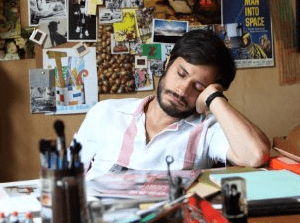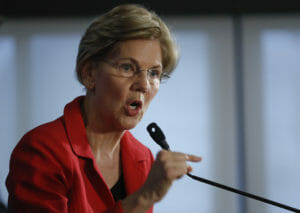The Chilean Mad Men of ‘No’
How did Gael García Bernal, an outspoken leftist who has played Che Guevara not once, but twice, end up starring in a film that would appear, on the surface at least, to be a celebration of 20th century free-market economics?
“No,” the Oscar-nominated film starring Mexican actor Gael García Bernal, dramatizes a curious moment in Latin American politics: the 1988 referendum whose defeat resulted in the fall of Chilean dictator Augusto Pinochet. That campaign marked a bittersweet victory for the nation’s largely communist opposition coalition. On the one hand, it finally rid the country of a feared and hated tyrant. On the other, it was a win that was due in no small part to the marketing savvy of the slick young ad men the coalition was forced to hire.
The film’s apparently pro-capitalist theme might seem an odd fit for Bernal, an outspoken leftist who has played Che Guevara not once, but twice. The actor, director and producer is also a human rights advocate and the co-founder of Ambulante, a muckraking documentary festival that brings movies — and perhaps even more important, filmmakers and filmmaking workshops — to remote locations such as jungles and even prisons in which the people have little or no access to cinema. So how did he end up starring in a film that would appear, on the surface at least, to be a celebration of 20th century free-market economics?
García Bernal met with Truthdig in Michoacan, Mexico, after “No’s” national premiere at the Morelia International Film Festival in November. Thankfully free of the ’80s rattail he sports in the film, the 33-year-old spoke openly about propaganda, Ambulante and his own reading of the movie in which his character is based on two real life mad men.
Sheerly Avni: The campaign won because it successfully sold the idea of “happiness” to the Chilean people. Did taking on this role challenge or reaffirm your negative opinions about marketing and advertising?
Gael García Bernal: It did both! I think that the marketing aspect of the film is not unique to one side or another. Propaganda can be a tool of any party, any movement, any organization. Look at the most famous images from the Cuban revolution. Why were they so iconic and so cool? Because they were staged, put together after the fact, after the fighting was over. And those kids in Cuba were so shaggy and hip and happy and they were showing the world that a group of young people could topple a government and run themselves. They sold it.
Avni: You could almost say that in this film, the advertising industry, and by extension capitalism, emerge as the “good guy.”
Bernal: Is it the good guy, or is it just that capitalism is Pinochet’s self-implanted poison? Because it was his own system that eventually undid him. He put in place a system of supply and demand, market structure and of course advertising, and it turned out that in this system, the ad men were much more savvy than the members of the military junta.
The men my character represents knew how to sell products, and when it came to selling democracy, they knew what to do. And as the film dramatizes, working with them was perhaps one of the biggest compromises that the communists and anti-Pinochet architects of the movement were forced to make.
Avni: Hiring a publicist?
Bernal: Yes, one thing you don’t see in the film, which begins with the No campaign itself, is that the referendum was made possible in part by all of the grass-roots work that Pinochet’s opponents had been doing — for years, going from town to town, asking people to speak up, share their opinions, stand up for themselves. But now when it came to an actual vote, the Chilean people were really terrified.
Avni: Why?
Bernal: There was a great deal of fear around voting in general at the time. In Venezuela, for example, you voted with your thumbprint. And in a recent election in Venezuela, the government had been able to seek out and investigate who had voted for whom. So people were frightened of the very idea of going to the polls.
Then there was a legitimate fear of rigging, especially among young people, because in 1983, there had been an election that was a complete nightmare — a fraud. So Chileans didn’t believe this referendum would be any different. Finally, there was another problem, which was that older Chileans had lived through the military coup and didn’t want to have to go through another crisis. And so it was the task of the No campaign to convince these two groups to come together and vote. They knew they would need to come in like — well, this is the ’80s, so — like Ghostbusters.Avni: Some of the film’s funniest moments come when your character is seeking out the perfect jingle to sell the idea of democracy. It’s absurd and delightful but also a bit cynical.
Bernal: And in a sense, any “free election” is always about selling a product. Look back at the first debate between Romney and Obama. Afterwards, the focus was not on the issues that the candidates had debated but on their performances. It was just “Romney was more secure, Obama seemed like he was somewhere else,” etc. It was all about who sells the better image. It seemed as if Obama had forgotten that it was not about content, but about being a good actor. … Or, if not acting, at least appearing decisive, confident, presidential.
Democracy has become really perverted. You saw this clearly in the No campaign, as if the competition were merely a Manichean decision of Pepsi vs. Coca-Cola. Coca-Cola equals happiness and Pepsi equals the new generation, so which do you like better?
And that degradation is not necessarily new. The philosophers who first articulated the concepts of democracy, from the Greeks through the French and the Germans in the Enlightenment, they all ran into a point where they hit a brick wall — saying, “shit, the electoral process in some way perverts the essence of democracy.”
Avni: This is a dark reading, both of the electoral process and the film itself.
Bernal: It is very dark. But that was 1988. Back in the day, the jingle was everything. Communications and advertising were at a different stage. As you see in the film, in 1988, you could sell the public on the idea that a simple kitchen appliance could change your life.
But now, you could make a promise like that, and we know it’s not true — not for a washing machine, not for a candidate. The public is losing that credulity. I personally never believe any campaign or anything I see on TV. And so my feeling is that the true political engagement happens day to day, in a much more complex, less Manichean way than what is offered by a referendum or an election. Otherwise it’s a waste, like watching Obama spend his entire first term campaigning for his second term.
“No” is a film that — at least in my reading of it — calls for the democratic process as a day-to-day phenomenon. True democracy is not just about a campaign, it comes from constructing movement, dialogue and confrontation as well, and by constructing involvement that ultimately might not even need an election.
Avni: So what does “involvement” mean? For example, your own festival, Ambulante, aren’t you just taking films that espouse a progressive point of view out to the masses? Couldn’t Ambulante be called the ultimate in propaganda?
Bernal: I think Ambulante is the direct opposite of propaganda. Or rather, it combines a form of propaganda with a form of engagement. Of course we are selling a product. We’re selling Ambulante — the idea that you should watch documentaries, or when we program, we are telling audiences, “You should watch this documentary, it’s incredible.” But the documentaries we choose, and the context in which we choose them, for example by hosting debates and encouraging audience interaction, invites audiences to think critically about what they see.
Part of the reason why Mexico has developed a critical, educated group of people is because of organizations like Ambulante.
Avni: And so despite the success of the campaign in the film, are you saying you are against these kinds of campaigns?
Bernal: Are you trying to make me choose for or against, one or the other, just like in the film?
Avni: Yes!
Bernal: That’s exactly the problem, because an ad campaign is not about content. And you know, I’m more interested in content. [Laughs.] Aren’t you?
To read Truthdig’s interview with “No” director Pablo Larraín, click here.
Your support matters…Independent journalism is under threat and overshadowed by heavily funded mainstream media.
You can help level the playing field. Become a member.
Your tax-deductible contribution keeps us digging beneath the headlines to give you thought-provoking, investigative reporting and analysis that unearths what's really happening- without compromise.
Give today to support our courageous, independent journalists.




You need to be a supporter to comment.
There are currently no responses to this article.
Be the first to respond.